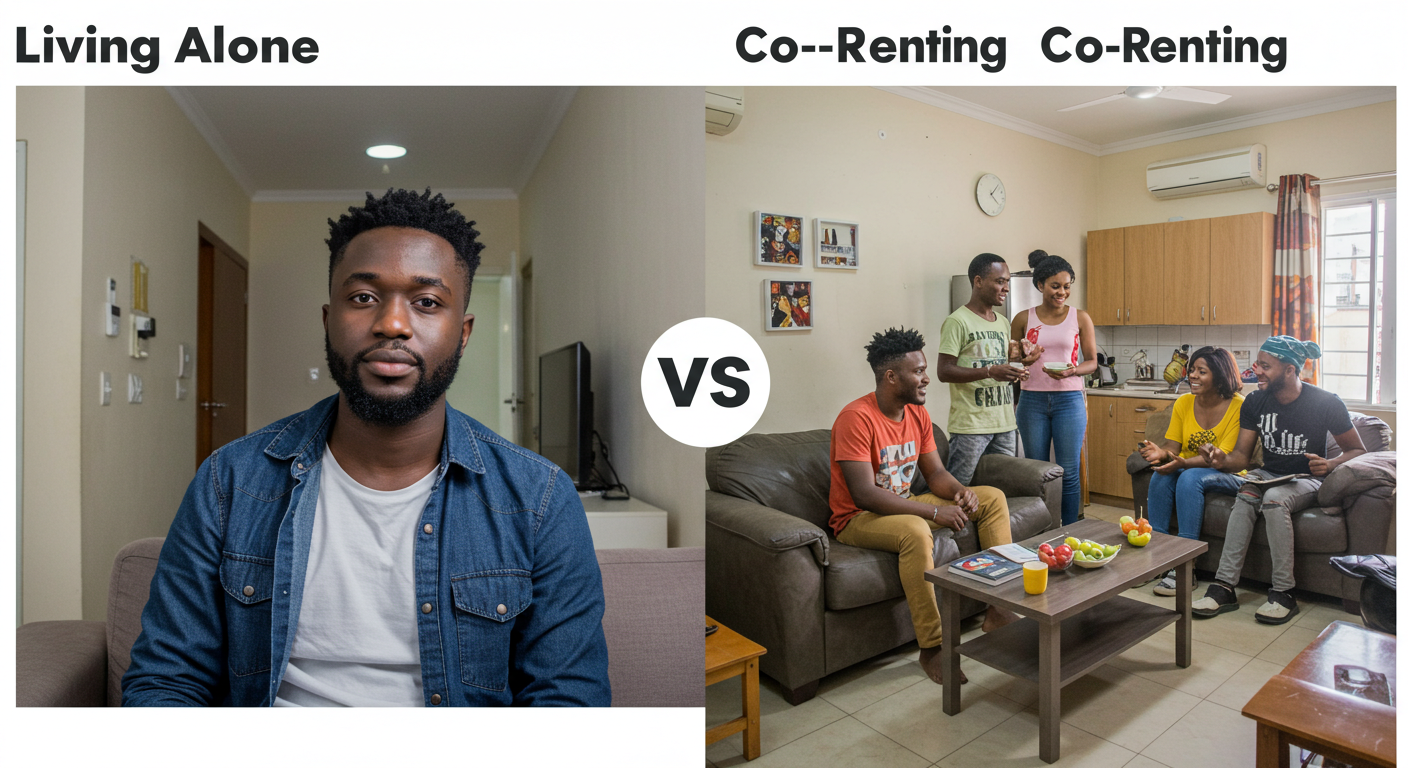If you’re considering renting an apartment in Lagos, one of the biggest decisions you’ll face is whether to live alone or share a flat.
While solo living offers privacy and control, it also means handling all expenses on your own. On the other hand, co-renting reduces financial pressure but comes with its own set of trade-offs.
In a city like Lagos—where every naira counts—understanding the hidden costs behind both options can help you make a smart financial decision. Here’s a breakdown of what to expect:
1. Rent and Security Deposit
-
Living Alone: You’ll bear the full rent—₦150,000 to ₦200,000 for a one-bedroom in areas like Yaba or Surulere. Security deposits are typically a year’s rent upfront, amounting to over ₦1 million at once.
-
Co-Renting: Sharing a two- or three-bedroom flat splits the rent. Your share could be as low as ₦50,000–₦80,000 monthly. Security deposits are also shared, easing the upfront financial load.
2. Utility Bills and Internet
-
Living Alone: Electricity, water, and internet fall squarely on your shoulders. Add ₦15,000–₦20,000 for generator fuel, and total monthly utility costs can hit ₦30,000 or more.
-
Co-Renting: Utilities are split among roommates, cutting your monthly costs down to around ₦8,000–₦10,000.
3. Furniture and Household Items
-
Living Alone: Furnishing your apartment could cost over ₦300,000 for basics like a bed, wardrobe, dining set, and kitchen gear.
-
Co-Renting: Costs for shared items (sofa, fridge, dining set) are divided. With each roommate contributing ₦50,000–₦100,000, your personal cost drops significantly.
4. Security and Maintenance
-
Living Alone: You may need to hire a private guard or install CCTV, adding ₦20,000–₦30,000 monthly.
-
Co-Renting: Most shared flats come with building security. Maintenance costs are also split, though agreeing on repairs may require negotiation.
5. Lifestyle and Convenience
-
Living Alone: Buying groceries in small portions costs more. Cooking for one can lead to frequent eating out, raising your food budget.
-
Co-Renting: Roommates can buy in bulk and share meal prep, which lowers costs. Carpooling or ride-sharing also saves on transport.
6. Social and Emotional Costs
-
Living Alone: The quiet can be refreshing—but also lonely. You might spend more on social outings or entertainment just to connect with others.
-
Co-Renting: Built-in companionship helps with mental wellness and saves on social costs, but clashes in personality or habits can create tension.
7. Flexibility and Mobility
-
Living Alone: You call the shots. But ending a lease early means paying penalties—often 2–3 months’ rent.
-
Co-Renting: Roommate transitions are easier to manage financially, but coordinating changes or replacements can be time-consuming and costly.





















